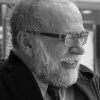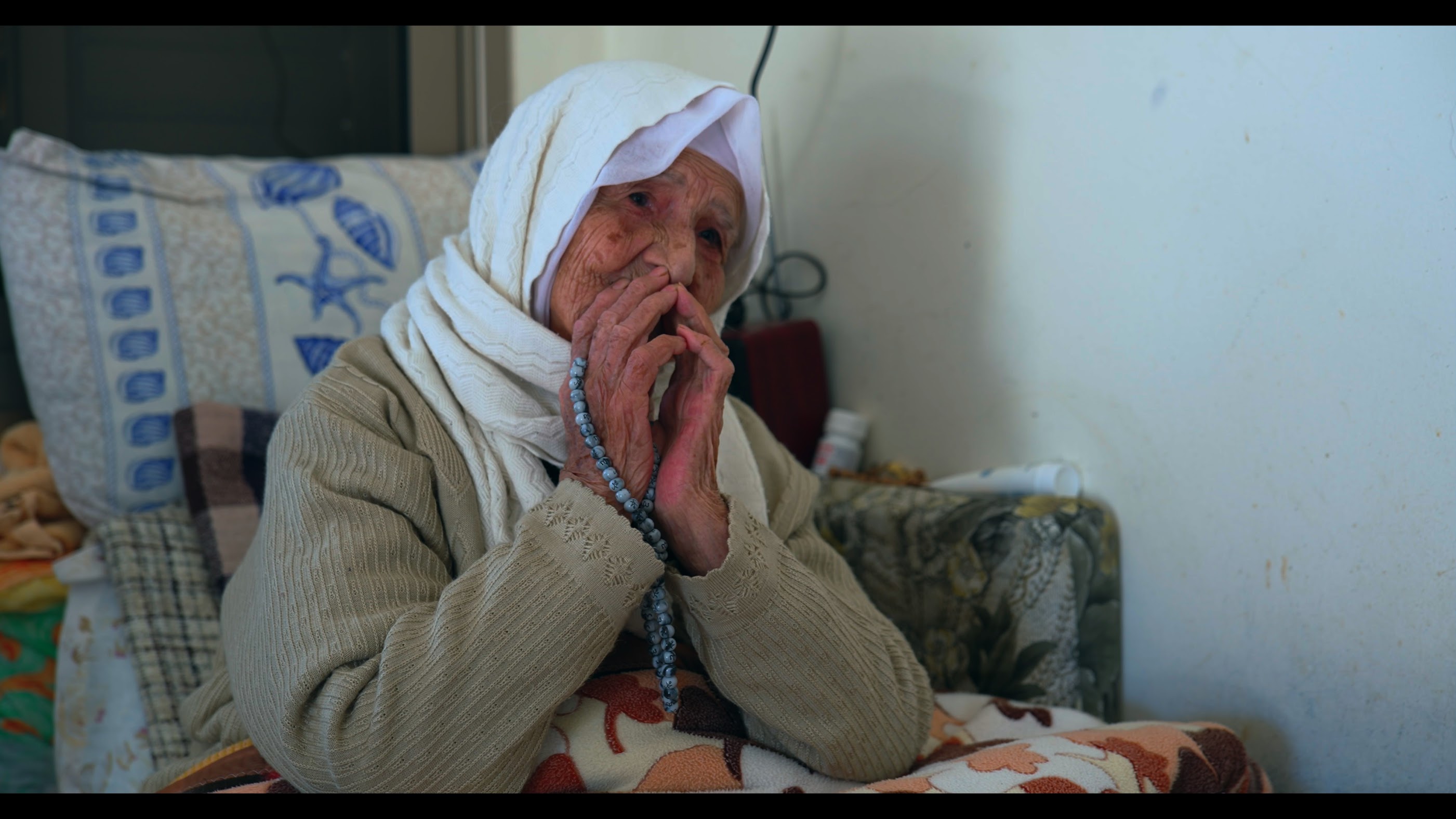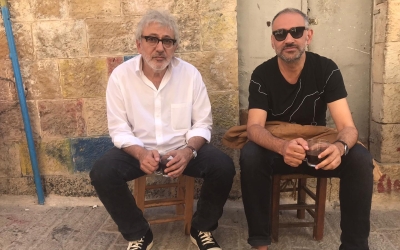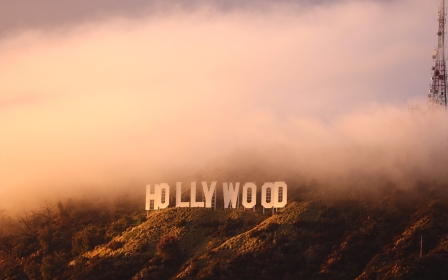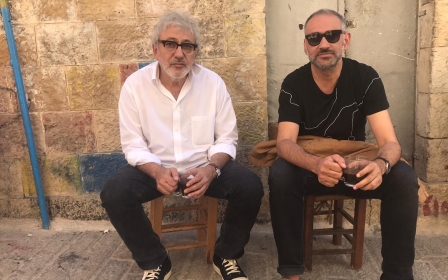Haifa's hidden history revealed in a Palestinian film of quiet beauty
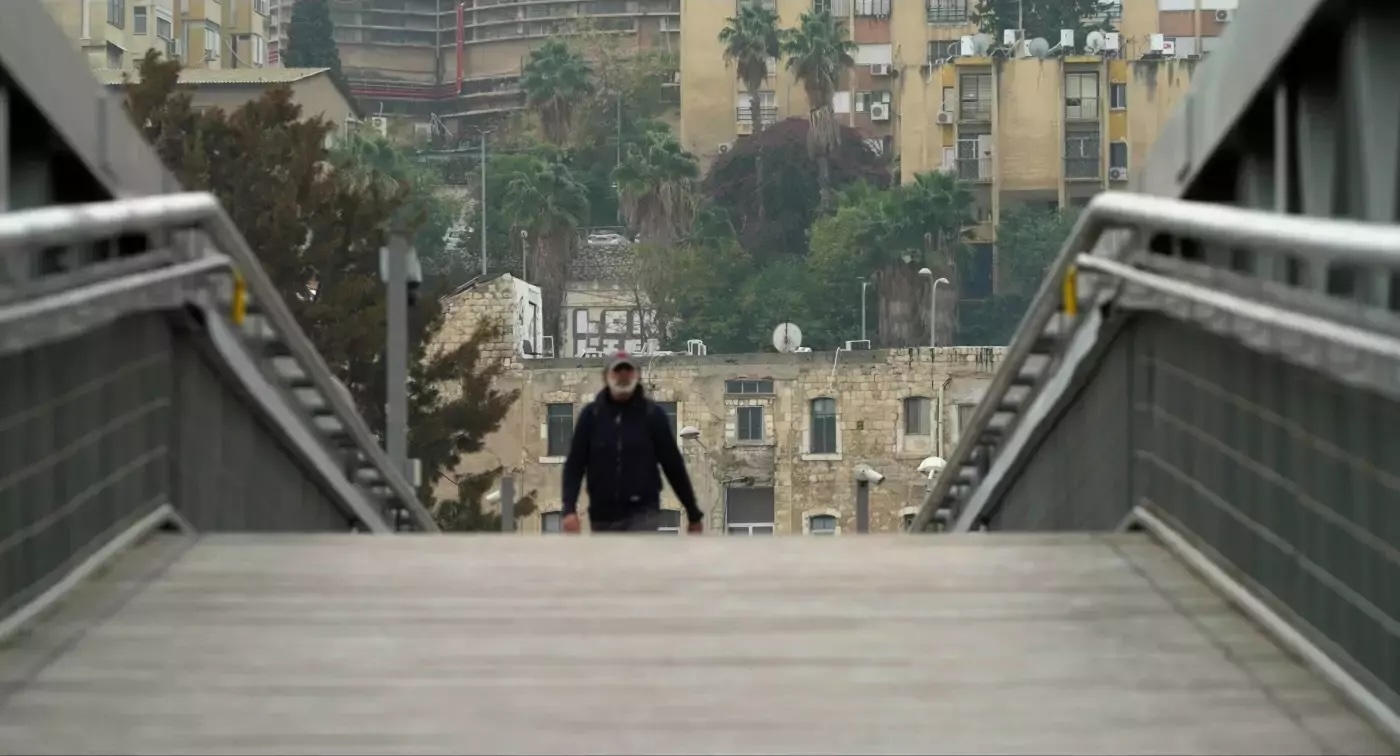
What do we do with ourselves in the midst of a genocide?
Palestinians in Gaza are being slaughtered in the tens of thousands, while Israeli settlers are burning olive trees in the West Bank and stealing their lands.
Our sacrosanct precincts in the Noble Sanctuary, or Al-Aqsa Mosque, are being desecrated by repulsive Israeli politicians.
Ancient mosques and churches are being destroyed as pages of the Holy Quran are torn and defiled by repugnant thugs in Israeli military uniforms. Our brothers and sisters are tortured and raped in Israeli dungeons, beheaded in their homes, and buried under tonnes of rubble.
New MEE newsletter: Jerusalem Dispatch
Sign up to get the latest insights and analysis on Israel-Palestine, alongside Turkey Unpacked and other MEE newsletters
Meanwhile, Vice President Kamala Harris and her party do not allow a single Palestinian to utter a word at her coronation to become the next US president.
What do we do in the face of vicious barbarity unleashed on earth?
We have to work. We have to read. We have to write. We protest. We listen to Rim Banna's music and Mahmoud Darwish's poetry. We read Edward Said's essays, and then we cry, argue, console each other, scream, and document.
We remain human in the face of this unleashed savagery that US politicians - Joe Biden, Donald Trump, and Harris alike - enable and empower. We cannot allow ourselves to become like our enemies: murderous savages trapped inside a messianic ideology of death and destruction.
It is in this context and mood that Nizar Hassan called me from Nazareth in occupied Palestine to tell me he had just finished a new film he wanted me to see.
In Hidden Haifa (Haifa al-Makhfiyyah), the eminent Palestinian filmmaker visually reclaims Palestine through its mostly deserted streets, empty and abandoned buildings, and old Arabic film posters.
'Masterful' story-telling
It has been nearly five years since Hassan made his powerful film, My Grandfather's Path (Tariq Sidi), which we managed to screen at Columbia University in New York for our colleagues and students in late 2020.
My Grandfather's Path remains one of the most powerful, moving, and revelatory stories Hassan has told in his long and illustrious career. In the film, he appears centre-stage as he, his sound engineer, and cinematographer walk from one end of Palestine to the next, recollecting a journey his grandfather made through the heart of a brutalised Palestine. It is a profoundly gentle and serene film that quietly tells a most vicious story of theft and dispossession.
Hidden Haifa is the story of the hidden layers of Palestinian life and history in one of their most ancient cities
How Hassan musters such patience and poise is a question I have always asked myself while watching his films.
Although Hassan, who lives in Nazareth, and I are in regular contact, he still managed to surprise me when he reached out in early August, wanting to share with me a rough draft of the latest film on Haifa.
His message came as the ongoing genocide in Gaza had entered its 11th month, with at least 40,000 Palestinians killed.
I sat down to watch the penultimate cut, yet another masterful crafting of a story that only Hassan knows how to tell.
Hidden Haifa is the story of the hidden layers of Palestinian life and history in one of their most ancient cities. Hassan, accompanied by his sound engineer and cinematographer, once again excavates the history of Haifa with interviews and conversations. He closely examines recent books and old manuscripts, all woven together by the filmmaker's own persona, voice and vista, telling us his thoughts and reflections about what he and we see together.
The Zionist conquest of Palestine stands on one side, and this quiet and gentle yet defiant and fiercely determined filmmaker on the other. The world is their witness.
Uncovering Palestine
The film starts one evening at the port of Haifa with Hassan's reading of Haifa Diary: Reminiscences of an Octogenarian (2014) by Abdul-Latif Kanafani (1927-2019).
Kanafani was born and raised in Haifa before the Nakba. Then, eventually, like millions of other dispossessed Palestinians, he travelled far and wide before writing the memoirs of his childhood and early youth in Haifa towards the end of his life. (Hassan confirmed to me that Kanafani is not immediately related to the renowned Palestinian novelist Ghassan Kanafani, though they come from the same extended family.)
Follow Middle East Eye's live coverage for the latest on the Israel-Palestine war
Kanafani's memoir becomes the starting point of Hassan's documentary. He takes a copy of this memoir in English and another book Kanafani wrote in Arabic, 15 Shari' al-Burj (15 Burj Street), and travels throughout the city talking to Palestinians who help him reconstruct their collective memories of Haifa.
They visit cemeteries - climbing over walls and lifting tombstones to read what is there to discover. Hassan later researches the Hebrew and Arabic archives of the city and reads through boxes of old documents, poring over maps and old weapons museums. Here, Hassan acts as both a filmmaker and archivist.
In his journey, minute after minute, a hidden but tangible Palestine reveals itself through this reconstructed history of Haifa - in Hassan's mind, right in front of his camera as it curiously probes his face, his figure, and his travel from one street of his homeland to another.
Whether in Arabic, Hebrew, or English, the history of Palestine is present and uncovered once Hassan is done with it. This is the real history - a history from below - that translates collective Palestinian memory into archival evidence and a documentary film that reveals the pain and power of cinema.
Hassan, with his greying beard, bespectacled face, quiet determination, and disarming sense of humour, is mesmerised by the trove of evidence of Palestinian dispossession.
Needless to say, as we watch Hassan following the memory of Kanafani, we think of the better-known Ghassan Kanafani and his classic novella, Returning to Haifa, which Kassem Hawal, a Lebanese filmmaker, turned into a film in 1982.
Years later, the Iranian filmmaker Seifollah Dad's The Survivor (1995) was also based on the same novella. There have been other adaptations of the classic piece in other mediums, including recently for the stage by Naomi Wallace and Ismail Khalidi.
Throughout the film, I felt the frightful privilege of being told a history and story yet to be read and grasped by the world at large.
'Liberation' cinema
Hassan is a Palestinian citizen of Israel who, like other 48 Palestinians, is trapped inside the settler colony that rules their homeland. He has had to sit and watch in horror the Israeli slaughter of Palestinians in Gaza.
His new film, made while the genocide was in full swing, reveals another crucial issue: Palestinian cinema is a uniquely artistic force that unites all Palestinians inside Israel, in occupied territories, or else in refugee camps or exile around the globe.
Hidden Haifa is a historical document and cinematic evidence that no other Palestinian anywhere else could have made. Only Hassan, both as a Palestinian and as a documentary filmmaker, could have made this film. He has made it for the entirety of Palestine and for the truth and the historical record of the dispossessed terror inflicted on the place and its people.
Years ago, when I published my edited volume on Palestinian cinema, Dreams of a Nation: On Palestinian Cinema (2006), I raised the issue of the "mimetic crisis" in all aspects of Palestinian art. How do you represent or portray the enormity of the terror that the Zionist project has historically and systematically perpetrated on the mind, body and soul in your own homeland?
If art must sublate and sublimate reality to a higher register of truth to make it meaningful, then how can the enormity of the injustice perpetrated on Palestinians in broad daylight yield to any aesthetic imagination?
There is an impassable cognitive dissonance between the truth and the mobilised metaphors to represent it. In the aftermath of the current Palestinian genocide, this mimetic crisis becomes even more acute.
There is an impassable cognitive dissonance between the truth and the mobilised metaphors to represent it
Hassan's most recent film is still very much in the mimetic register of the history of Palestinian cinema before the Gaza catastrophe. This trauma is even worse than the Nakba. The sheer barbarity, vulgarity, and shamelessness of the brutish coalition of Israel and its European and American enablers cause a moment of creative crisis.
Where can Palestinian visual and performing art go from here?
I had scarcely raised that question when I saw it answered by the young Palestinian filmmaker Bisan Owda and her powerful documentary, It's Bisan from Gaza and I'm Still Alive. It is so simple and effective that the hotshots of the Hollywood pro-Israel lobby are mobilised to censor and silence it.
Leading Palestinian filmmakers have come to her defence, marking "the inhumanity and racism of Hollywood". The torch is being passed. Palestinians are the masters of their own story, of their own destiny.
The views expressed in this article belong to the author and do not necessarily reflect the editorial policy of Middle East Eye.
Middle East Eye delivers independent and unrivalled coverage and analysis of the Middle East, North Africa and beyond. To learn more about republishing this content and the associated fees, please fill out this form. More about MEE can be found here.


